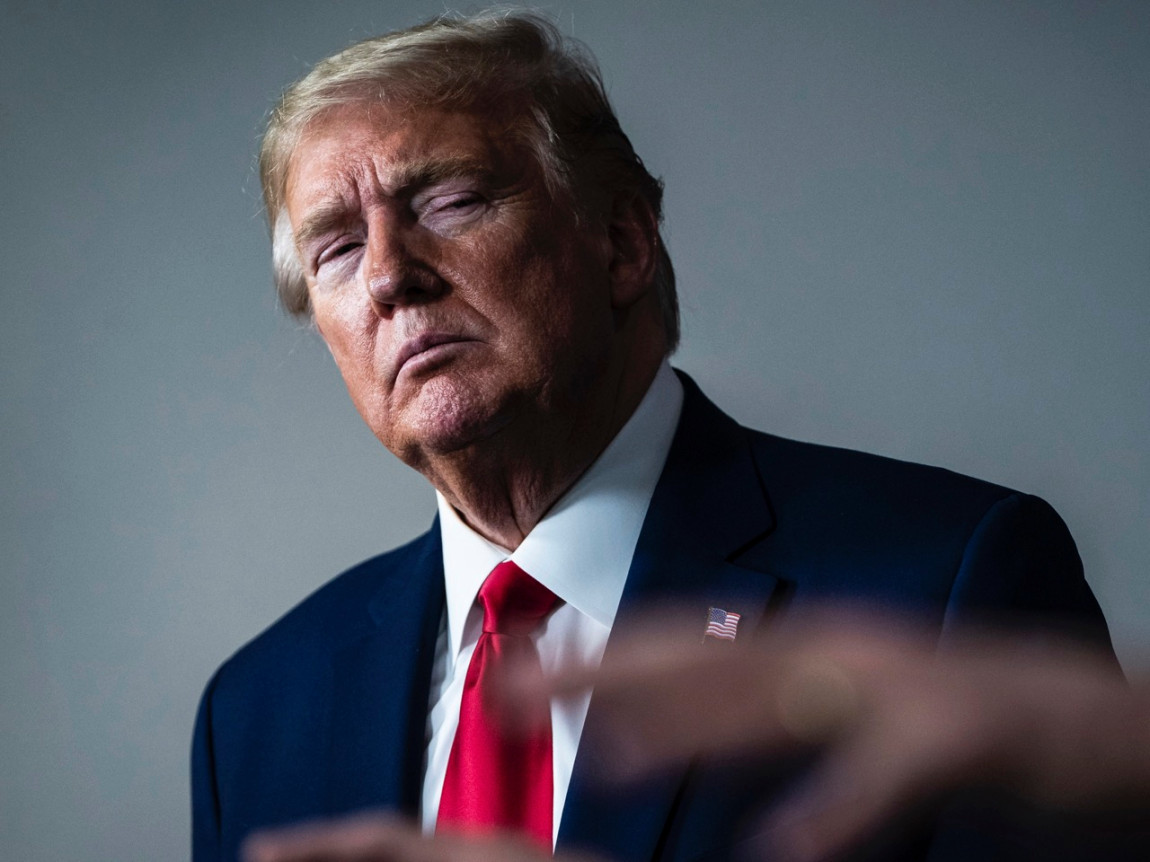Not many public health experts have been calling for new limits on immigration as a major part of the U.S. strategy to fight the spread of the coronavirus. In fact, some health experts have explicitly said the U.S. should not take such steps. So why is President Trump opting for new immigration restrictions? Probably because Trump is always looking to limit immigration — no matter the context.
Trump has suggested that his proposal, which is expected to halt the issuance of new green cards for at least the next 60 days, is justified on both national security grounds — where the rationale is that it will help stop the spread the virus — and economic ones — where the rationale is that in the middle of a likely recession, immigrants should not take away jobs from people already in the country. It’s probably too soon to evaluate this new policy by those rationales, as the executive order describing the policy has not yet been released. Furthermore, it’s likely that its implementation will be complicated, and the courts could block the policy itself before it goes into effect.
But there are reasons to be skeptical of Trump’s stated rationales. The president nearly always cites economic and security reasons for adopting various anti-immigration stances — and experts nearly always say that those rationales don’t stand up to scrutiny.
Instead, the simplest explanation for Trump’s decision to halt some legal immigration to the U.S. is that it aligns with his long-held ideological beliefs, and the electoral strategies and policy choices that spring out of those. Since well before the coronavirus outbreak, Trump has practiced an identity politics where he often uses people of color and immigrants as foils. Since well before the coronavirus, one of Trump’s core policy ideas was limiting immigration however possible. And Trump has campaigned on being tough on immigration since he entered the Republican presidential primary in 2015.
In this light, it’s pretty easy to explain Trump’s new policy. One likely rationale is simply that Trump is an immigration hawk who has long wanted to essentially “shut down the border,” and the virus gave him the pretext for taking one of his more aggressive anti-immigration moves as president. In fact, this new policy might have a limited impact because the administration had already dramatically curtailed immigration since the outbreak of COVID-19.
A second explanation is electoral. Trump is up for reelection in November, and he and his team probably think that the president’s anti-immigration stances help him at the ballot box. After all, it’s hard to imagine Trump being in the White House without his promises to build a wall on the U.S-Mexico border and ban Muslims from entering the U.S. — Trump’s anti-immigration approach was likely a major factor in his winning the GOP primary in 2016.
Those anti-immigration stances may not actually help Trump in the general election this November — even if he thinks they will. Polls suggest Americans overall don’t hold strongly anti-immigration views. And it’s notclear that Trump’s immigration stances were particularly helpful electorally to him or Republicans in general in the 2016 general election and the 2018 midterms. In the final weeks before the midterms, for example, Trump talked about immigration nonstop and his party lost badly, including key races in Michigan, Pennsylvania and Wisconsin — all states where Trump won in 2016.
More fundamentally, this new immigration ban fits with Trump’s approach to both governing and electoral politics, which relies on a kind of identity politics that casts certain groups, particularly people who are white and Christians, as allies, and casts others, often those who are non-white, as enemies. Amid the virus outbreak, Trump and his team have continually highlighted that the virus originated in China, attacked the World Health Organization as too tied to the Chinese and released an ad connecting presumptive Democratic presidential nominee Joe Biden to China that the New York Times described as xenophobic.
In addition, Trump has increasingly attacked the media and Democratic governors who have issued state-at-home orders.1 The president has homed in on Michigan Gov. Gretchen Whitmer in particular.
If you’ve been following Trump’s campaign and presidency for awhile, the president’s attacks on China, immigrants, the media and prominent female politicians shouldn’t feel novel at all. These are his normal political instincts — to frame people and groups outside of his core coalition as foils. This time, the difference is that it’s happening amid a global pandemic.




